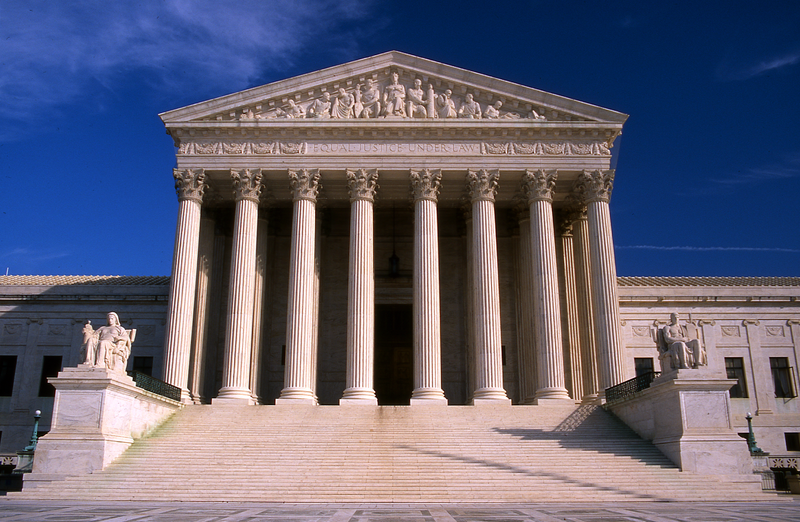A Step in the Right Direction
 On June 28, 2012, the Supreme Court of the United States upheld President Obama’s health care law, the Affordable Care Act, in a 5-4 vote with Chief Justice Roberts casting the deciding vote. This highly anticipated event does not fix all the problems with the American health care system or even with the Affordable Care Act, but it does provide some certainty and direction. This decision affirms that the bill Congress adopted into law in 2010 is in fact constitutional. With the mandate understood as a tax and the provision that states can opt out of expanding Medicaid coverage without penalties, Affordable Care Act lies firmly within the bounds of the Constitution.
On June 28, 2012, the Supreme Court of the United States upheld President Obama’s health care law, the Affordable Care Act, in a 5-4 vote with Chief Justice Roberts casting the deciding vote. This highly anticipated event does not fix all the problems with the American health care system or even with the Affordable Care Act, but it does provide some certainty and direction. This decision affirms that the bill Congress adopted into law in 2010 is in fact constitutional. With the mandate understood as a tax and the provision that states can opt out of expanding Medicaid coverage without penalties, Affordable Care Act lies firmly within the bounds of the Constitution.
The Affordable Care Act does many good things for the country and future generations. This law prevents insurance companies from refusing insurance to people with pre-existing conditions. It also prevents insurance companies from charging a person more based on gender, and allows people under the age of 26 to stay on their parents’ health care plans. The heart of the controversy revolved around the individual mandate, which stipulates that all US citizens must purchase health insurance. The Supreme Court ruled that the mandate is not legal under the Commerce Clause in the Constitution — though it is legal as a tax.
How is this expansion of the health care system being paid for? Through a tax imposed on everyone equally. The system requires that everyone pay for themselves — an uninsured man in a car crash with a $20,000 hospital bill won’t be the country’s problem, anymore. The law is not perfect, nor fully operational yet (the mandate not becoming effective until 2014). But, at least the question now can now be “how will it work?” rather than “is the law even constitutional?”
Citizens that want the law repealed will have their views aired very soon with the House Majority Leader Eric Cantor (R-Va.) having scheduled a vote to repeal the law on July 9. The expectation is that votes along party lines will find this repeal measure passing the House and never seeing the light of day in the Senate. The majority of Americans on both sides of the political aisle feel that the health care system we have today has major issues. The system is broken and they want to fix it, but they do not know how. This is clearly not the end of health care reform, but we have to start somewhere.
Both President Obama and Mitt Romney, promptly gave speeches on the Supreme Court upholding the health care law. President Obama noted the “decision was a victory for people all over this country whose lives are more secure because of this law”. Romney, in contrast, said he will repeal the Affordable Care Act if elected and counter with a law of his own. His speech does not explain how he will repeal a law duly adopted by Congress and upheld by the Supreme Court, or any specifics concerning his plans for the future of the nation’s health care system.
There are valid criticisms of this law. For example, it fails to restrict big pharma’s ever increasing costs and the absence of even a small co-pay requirement to encourage all people to use medical resources efficiently. But that does not change the fact that the law was upheld. People can say what they want about this law, but remember that there are many out there, myself included, who greeted today’s ruling with a sigh of relief; I now know that when I need to get my own insurance, my pre-existing condition will not hinder me.
Chief Justice Roberts is traditionally a conservative justice who shocked many in his decision to uphold the Affordable Care Act. For a Bush appointee to have cast the deciding vote in favor, I believe, is a sign that there are good things in this law that will help all Americans in the future.
